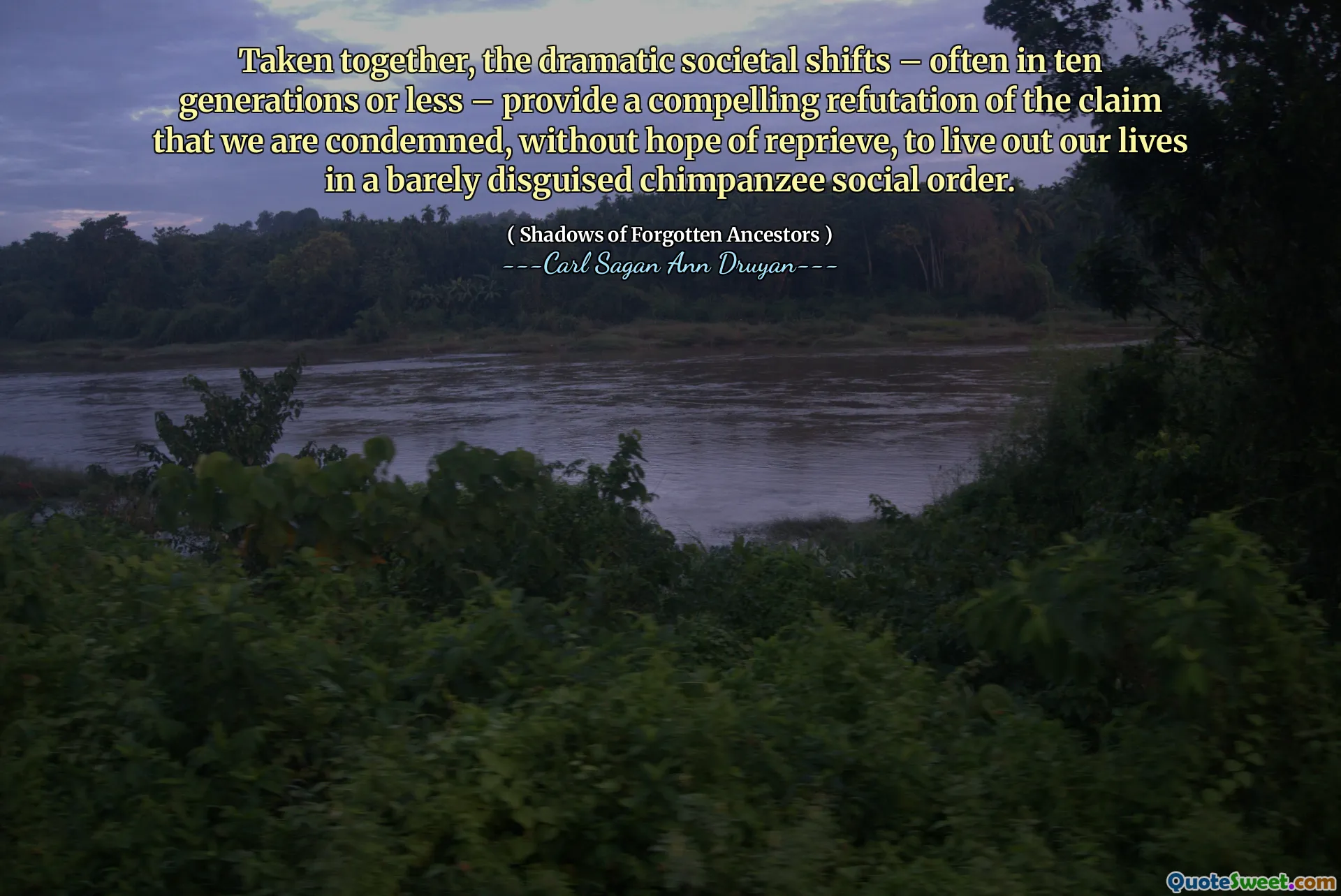
Taken together, the dramatic societal shifts – often in ten generations or less – provide a compelling refutation of the claim that we are condemned, without hope of reprieve, to live out our lives in a barely disguised chimpanzee social order.
This quote underscores the remarkable capacity of human societies to evolve rapidly within relatively short spans of time, often spanning a mere ten generations. It challenges deterministic perspectives that suggest human nature is fixed or that our social structures are unchangeable and inherently primitive. The implication is that social Dynamics—such as advancements in technology, education, moral frameworks, and political organizations—can lead to profound transformation in societal behavior, attitudes, and institutions over a few generations. This resilience and adaptability highlight the hope for continued progress and the potential for societal upliftment away from baser instincts associated with chimpanzee social hierarchies, such as dominance, aggression, and territorialism. It suggests that human history is punctuated by these swift shifts, driven by innovation, cultural evolution, and collective effort. Recognizing this capacity for change encourages a perspective of optimism; it invites us to believe that current societal challenges, no matter how deeply embedded or seemingly insurmountable, can be addressed and transformed through sustained effort and adaptability. This understanding fosters a sense of responsibility and agency—the idea that future generations hold the power to forge more equitable, compassionate, and enlightened social structures. Ultimately, the quote prompts us to see societal evolution as evidence of hope, emphasizing that we're not condemned to a primitive social existence, but are capable of constant renewal and growth.






